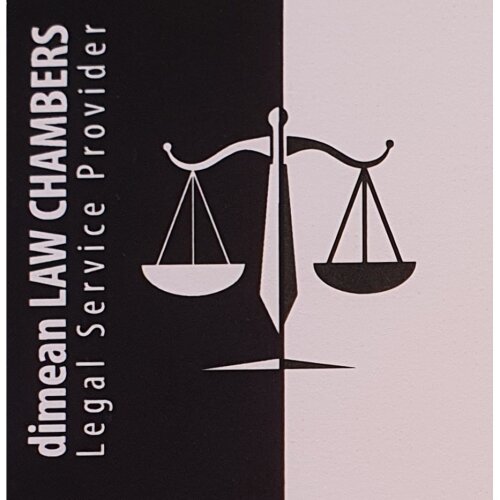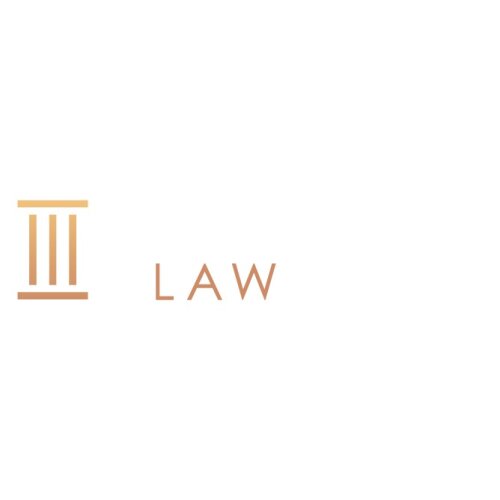Best Energy Regulatory Law Lawyers in Colombo
Share your needs with us, get contacted by law firms.
Free. Takes 2 min.
List of the best lawyers in Colombo, Sri Lanka
About Energy Regulatory Law in Colombo, Sri Lanka
Energy Regulatory Law in Colombo, Sri Lanka governs the generation, transmission, distribution, and supply of energy within the country. This area of law is primarily concerned with electricity, petroleum, natural gas, and renewable energy sources. It addresses how energy resources are managed, how rates and tariffs are set, and the legal requirements for companies and individuals who wish to engage in energy-related businesses. The framework aims to balance consumer interests, promote sustainable development, ensure reliable supply, and enforce national energy policies.
Why You May Need a Lawyer
Seeking legal advice in the field of Energy Regulatory Law becomes essential in several scenarios. Individuals and businesses may need a lawyer if they are:
- Setting up energy-related businesses, such as electricity generation, transmission, or distribution companies
- Facing regulatory investigations or enforcement actions by governmental authorities
- Negotiating power purchase agreements or other contractual arrangements with utility providers
- Coordinating renewable energy projects that require compliance with complex licensing and permit requirements
- Challenging or appealing regulatory decisions that impact energy tariffs or market access
- Dealing with consumer protection matters related to energy supply or billing disputes
- Seeking to understand obligations under local and international regulations for energy import and export
- Addressing issues connected to environmental laws that overlap with energy regulations
In these circumstances, a knowledgeable lawyer can help clients navigate the regulatory framework, protect their rights, minimize risks, and ensure compliance with all legal requirements.
Local Laws Overview
In Sri Lanka, the principal law governing the electricity sector is the Sri Lanka Electricity Act, which is implemented by the Public Utilities Commission of Sri Lanka (PUCSL). The petroleum industry is regulated by the Ceylon Petroleum Corporation Act. Matters relating to renewable energy are overseen by the Sri Lanka Sustainable Energy Authority Act.
Key aspects of these local laws that are relevant in Colombo include:
- The PUCSL is empowered to issue licenses for generation, transmission, and distribution of electricity
- There are specific requirements for safety, quality, and reliability of supply
- Tariff rates for consumers are determined and approved by the PUCSL after a formal process involving public consultation
- Comprehensive licensing regimes exist for petroleum exploration, refining, storage, and distribution
- Renewable energy projects must comply with both environmental and energy regulations
- There is growing emphasis on sustainable development, energy efficiency, and environmental protection
- Penalties and sanctions can be imposed for non-compliance with regulatory orders
Anyone transacting in the energy sector in Colombo must ensure thorough compliance with these legal regimes to avoid penalties or operational interruptions.
Frequently Asked Questions
What is the role of the Public Utilities Commission of Sri Lanka (PUCSL)?
The PUCSL acts as the national regulator for the electricity sector. It is responsible for issuing licenses, regulating tariffs, ensuring service quality, handling consumer complaints, and enforcing compliance with relevant laws.
Do I need a license to generate electricity for commercial purposes?
Yes, generating electricity for commercial supply requires a license from the PUCSL. Exemptions are available for certain small-scale renewable energy projects, subject to approval.
How are electricity tariffs determined in Colombo?
Electricity tariffs are proposed by the Ceylon Electricity Board and approved by the PUCSL through a regulatory process that includes stakeholder input and public consultation.
What regulations apply to renewable energy projects?
Renewable energy projects must comply with the Sri Lanka Sustainable Energy Authority Act and obtain approval from the relevant authorities. Environmental impact assessments may also be required.
How can consumers resolve disputes with energy suppliers?
Consumers can file complaints with their service provider first. If unresolved, they may escalate the issue to the PUCSL, which provides dispute resolution services.
Are there restrictions on foreign investment in the energy sector?
While foreign investment is allowed in certain areas, there are regulatory and ownership restrictions, especially in strategic segments of the sector. Investors must comply with approval processes and local laws.
What penalties exist for violating energy regulatory laws?
Penalties can include fines, license suspensions, and orders to cease operations, depending on the severity and type of violation.
Is energy deregulation taking place in Sri Lanka?
The sector is regulated, but there are initiatives to promote competition, especially in renewable energy. The main electricity transmission and distribution remain state-controlled.
Do energy projects require environmental permits?
Yes, most large-scale energy projects require environmental permits and compliance with environmental standards as set by the Central Environmental Authority.
Can I sell surplus electricity from a rooftop solar system?
Yes, under net metering and related programs, individuals and businesses can sell surplus electricity back to the grid. This requires registration and compliance with PUCSL guidelines.
Additional Resources
If you are seeking further information or assistance related to Energy Regulatory Law in Colombo, the following resources may be helpful:
- Public Utilities Commission of Sri Lanka (PUCSL) - The primary regulatory body for electricity and utilities
- Sri Lanka Sustainable Energy Authority - Responsible for renewable energy policy and approvals
- Ceylon Electricity Board - The main electricity provider and infrastructure operator
- Ceylon Petroleum Corporation - Regulates and operates petroleum activities
- Central Environmental Authority - Handles environmental approvals for energy projects
- Ministry of Power and Energy - Policy and strategy development for the energy sector
- Local law firms specializing in energy and infrastructure
Consulting these organizations or seeking out guidelines they publish can provide additional clarity on regulatory requirements and processes.
Next Steps
If you need legal assistance in Energy Regulatory Law in Colombo, consider taking these steps:
- Identify and clearly define your legal issue or question
- Gather relevant documents, such as licenses, correspondence with authorities, and project proposals
- Consult with a lawyer or law firm that specializes in energy regulatory matters
- Prepare a list of questions and desired outcomes for your lawyer
- Follow professional legal advice regarding compliance, dispute resolution, and applications for permits or licenses
- Keep records of all interactions with regulatory authorities and service providers
A lawyer experienced in local energy regulation can guide you through the process, help protect your interests, and ensure that your activities remain compliant with Sri Lankan laws. Early legal intervention can prevent complications and streamline your engagement with the sector.
Lawzana helps you find the best lawyers and law firms in Colombo through a curated and pre-screened list of qualified legal professionals. Our platform offers rankings and detailed profiles of attorneys and law firms, allowing you to compare based on practice areas, including Energy Regulatory Law, experience, and client feedback.
Each profile includes a description of the firm's areas of practice, client reviews, team members and partners, year of establishment, spoken languages, office locations, contact information, social media presence, and any published articles or resources. Most firms on our platform speak English and are experienced in both local and international legal matters.
Get a quote from top-rated law firms in Colombo, Sri Lanka — quickly, securely, and without unnecessary hassle.
Disclaimer:
The information provided on this page is for general informational purposes only and does not constitute legal advice. While we strive to ensure the accuracy and relevance of the content, legal information may change over time, and interpretations of the law can vary. You should always consult with a qualified legal professional for advice specific to your situation.
We disclaim all liability for actions taken or not taken based on the content of this page. If you believe any information is incorrect or outdated, please contact us, and we will review and update it where appropriate.

















